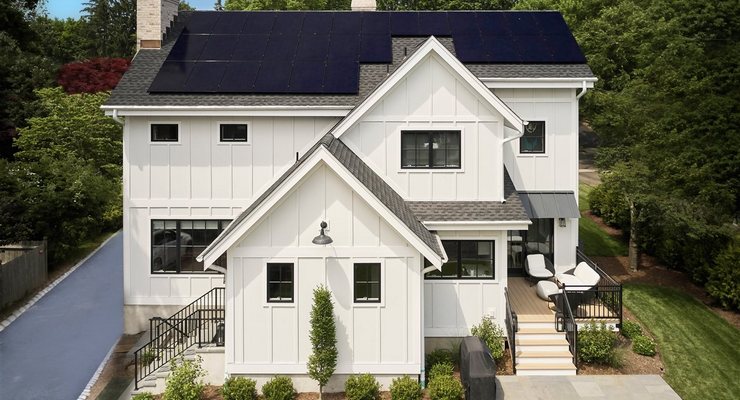
As people have been spending more time at home and watching their utility bills increase, solar energy is becoming a topic of interest. In fact, even with more constrained purchasing practices in many households in the current environment, a recent Harris Poll research study revealed a 13 percent increase in consumer interest in solar energy since mid-March.
That’s not surprising, given that the installation of solar panels can save homeowners hundreds of dollars in monthly utility bills, boost the value of their homes and provide peace of mind about helping the environment. Thankfully, making solar energy part of your daily life has never been easier.
If you are among the millions of American homeowners considering making the logical step to solar energy, here are some facts from renewable energy experts.
Solar works all day, year-round, in any weather
Your solar energy system gathers the most energy from full sun, but it can still work at 10 to 25 percent capacity on overcast days. What about snowy days? Your system will still gather some energy even if it’s partially covered, and high-quality solar panels are designed both to withstand significant amounts of accumulated snow and to help melt it away.
It’s easier than ever to go solar
There are new tools to walk you through the technology and financing you would need to get started with a solar installation or conversion. One such personal solar advisor is called “Solar Concierge.” This program from LG Solar takes a consultative approach, without high-pressure sales tactics, helping you determine whether solar meets your objectives and sets you up with an installer if you’re interested.
Solar panels pay for themselves
By offsetting what you pay for electricity, solar panels can pay for themselves. The payoff date depends on the size and cost of your system, the amount of energy you use and the rebates and incentives you employ. Generally, for the first eight years or so, your annual investment in solar power will likely equal the amount you would otherwise pay to power your home in other ways. After that time, your solar power will essentially be free and should continue to work efficiently for many more years.
Not all panels are created equal
Because solar panels can vary so much, you’ll want to conduct research before finalizing your purchase. Check reputable buyer’s guides and seek a company that has a long history of high-quality design innovation, testing and manufacturing, looking for evidence of both cutting-edge solar technologies and global sustainability. Find a brand you can trust with a 25-year warranty. When choosing products, note that some of today’s high-efficiency panels generate nearly 20 percent more energy than conventional panels of the same size. With higher-efficiency panels, you may even have surplus green energy to sell back to your local utility provider.
Solar systems can be designed to work with most roofs
These days, a number of options are available for securely connecting your panels regardless of the limited space your roof might have or what it’s made of. A solar installer can assess your roof’s maximum weight load and your city’s building code before designing a solar system that works for your home. Homeowners can choose from a range of designs, including sleek and premium panels that deliver a modern aesthetic.
To find more information about the solar power system that’s ideal for your home, please visit lg.com.












